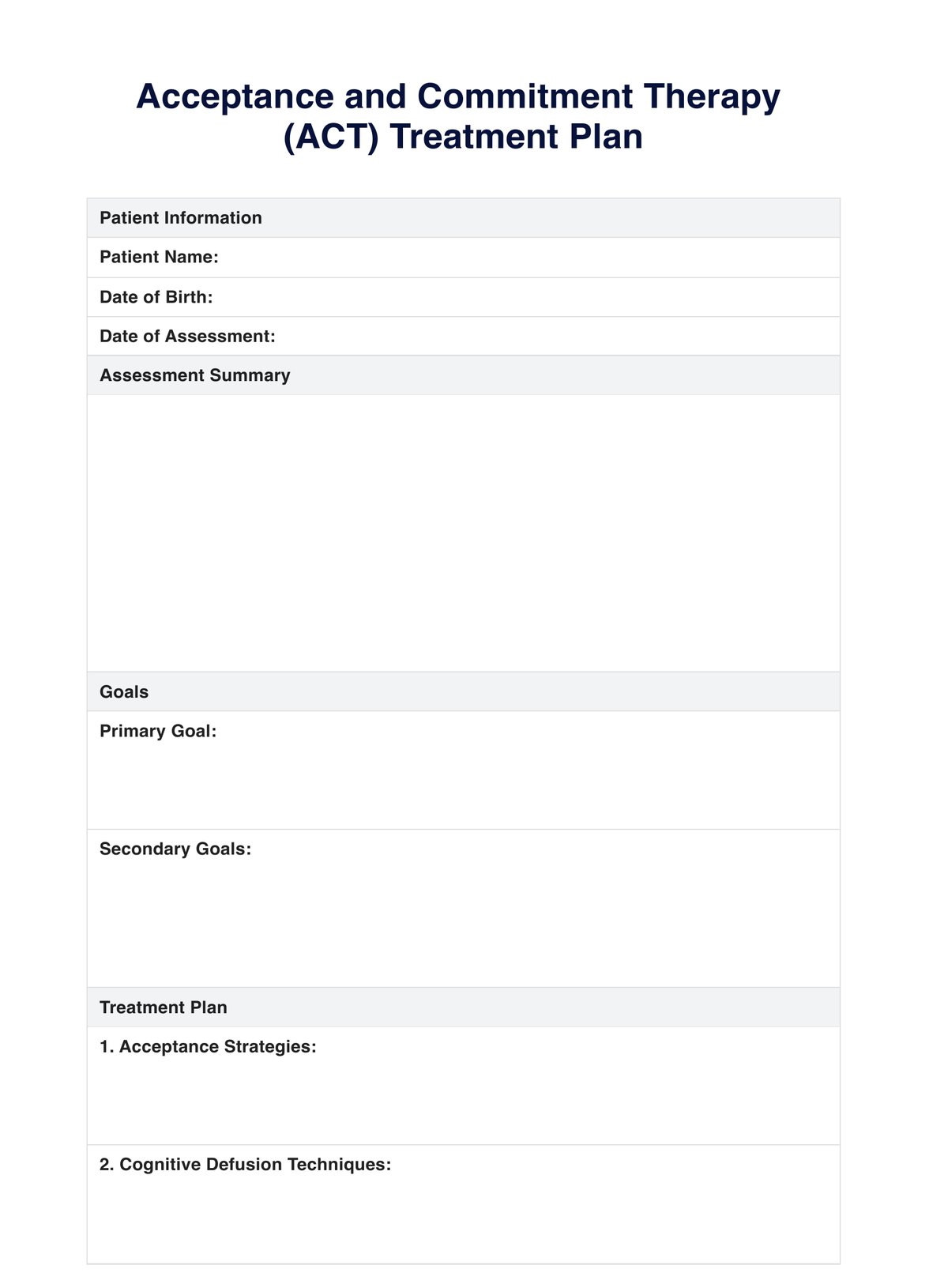The acceptance commitment therapy (ACT) treatment process involves cultivating psychological flexibility through mindfulness, acceptance, and value-based actions. It includes clarifying values, defusing unhelpful or negative thoughts beforehand, and committing to actions aligned with one's values despite discomfort.

ACT Treatment Plan
Download our free ACT Treatment Plan for more effective planning and application of ACT approaches in the therapeutic process.
ACT Treatment Plan Template
Commonly asked questions
Acceptance commitment therapy (ACT) has high therapeutic utility. It is used in the treatment of various mental health conditions, including anxiety disorders (e.g., panic disorder), depression, PTSD, OCD, chronic pain, substance abuse disorders, and eating disorders.
The acceptance commitment therapy (ACT) treatment regimen typically involves a structured series of sessions with a therapist, incorporating mindfulness exercises, values clarification, cognitive defusion techniques, and committed action planning tailored to the individual's needs.
EHR and practice management software
Get started for free
*No credit card required
Free
$0/usd
Unlimited clients
Telehealth
1GB of storage
Client portal text
Automated billing and online payments










